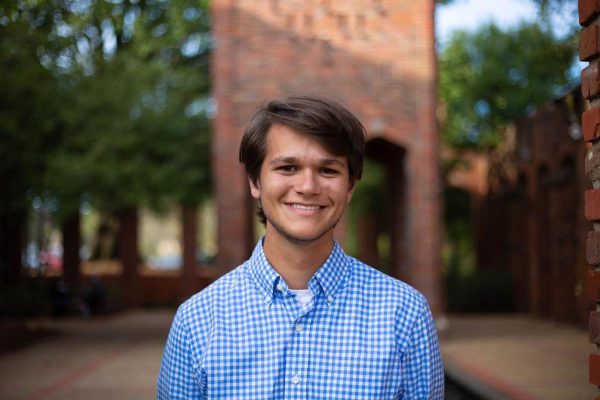During March, Self-Harm Awareness Month, a Mississippi State University student aims to bring the conversation about the often-overlooked mental health issue to campus. “Stronger than Our Scars” is a program created by Ashlynn McCain, a senior psychology and communication major and a participant in the Montgomery Leadership Program.
“Stronger than Our Scars” asks students who have experience in self-harming to submit their stories or words of inspiration anonymously through text or pictures which will be displayed at a public event that will be held on March 2 from 2-4 p.m. in the Colvard Student Union Dawg House.
Aside from student submissions, the event will feature representatives from both Health Promotion and Wellness and Student Counseling Services to provide an educational aspect to the project. The two departments have worked closely as partners with McCain throughout the development of “Stronger than Our Scars.”
According to McCain, the main goal of the program is to foster a sense of security for those who have self-harmed or are self-harming while simultaneously educating the public to reduce the stigma currently surrounding the subject.
“We really just want to give people a space to share their stories because there is such a stigma surrounding self-harm which makes people feel the need to hide it. No matter their motivation behind it, we want to provide a safe space for them to share completely anonymously,” McCain said. “You can share as much as you want, there’s no word count or limit to be met, but we want to promote a message of recovery.”
McCain’s creation of the program serves as a part of her participation in the Montgomery Leadership Program. In the third semester of the program, students are required to complete a capstone project. McCain’s passion for mental health led her to create a project that spreads awareness for the seldom-covered issue of self-harm.
“For me, I wanted to do something concerning mental health, but I did not want to do something that has been done 20 times before. Other topics have been tackled more frequently. Suicide, violence, depression and anxiety are covered a lot, and I really feel like self-harm specifically is not. So, I thought about something that was applicable to me, and I realized that self-harm is what I wanted to cover,” McCain said. “Mostly, I just wanted to do something that I could put my heart and soul into and I truly, genuinely have.”
Throughout the planning process, McCain has worked closely with her partners to ensure the project will be as effective and beneficial as possible. Kim Kavalsky, the coordinator for mental health outreach for Health Promotion and Wellness, said she sees the project as a way to humanize the issue and make students aware of the resources available to them if they ever need help.
“I want students to have that personal connection by seeing the images of students that have struggled and see that this is something that happens on our campus. This is not something you have to struggle with in isolation,” Kavalsky said. “This project is a way to reach students and make them aware of what help exists for them if they are not already connected. I believe it will help take away the mystery behind counseling and allow students to benefit from that.”
Serena McCovery, the assistant director of Student Leadership and Community Engagement within the Montgomery Leadership Program, has worked with the logistics and budget planning of “Stronger than Our Scars” alongside McCain. McCovery said she is proud of McCain’s representation of the topic and hopeful that the program will create awareness on campus.
“Ashlynn is stepping out and covering this sensitive topic because it is an issue that college students face. I think it is a topic that we oftentimes overlook so I am really glad that she is bringing it to the forefront with her project,” McCovery said. “I really hope that this would start a conversation both for those who are not necessarily familiar with any type of self-harm as well as those who have overcome it. I want students to be able to speak to it in a positive light. Maybe those who are not as familiar with it can see some signs in people that they may be close to and assist them in getting help.”
Whether students attend the event or not, McCain said she believes they should be able to take away the positive lessons of the program.
“No matter what you are going through,” McCain said, “whether it be self-harm or something completely different, you are stronger than that and you will overcome it.”














